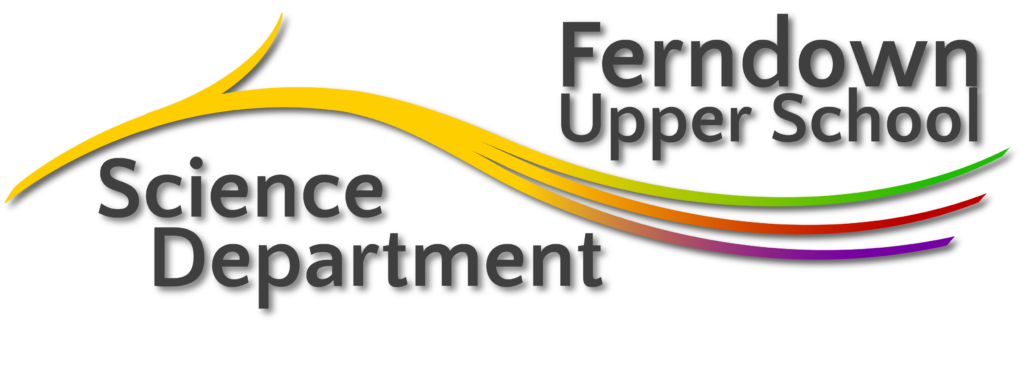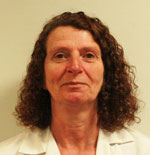Chemistry

In Chemistry, our theories are crutches; to show that they are valid, they must be used to walk… A theory established with the help of twenty facts, must explain thirty, and lead to the discovery of ten more. – Jean-Baptiste-André Dumas

Miss. Helen Neal
Head of Chemistry

Ms. Sharon Spring
Chemistry Teacher

Ms. Sam Druce
Chemistry Teacher

Mrs. Rachael Barrett
Chemistry Teacher

Mrs. Babs Pearce
Chemistry Technician

Miss. Helen Neal
Head of Chemistry

Ms. Sharon Spring
Chemistry Teacher

Mrs. Rachael Barrett
Chemistry Teacher

Dr. Kate Rickard
Chemistry Teacher

Miss. Helen Rendell
Chemistry Teacher

Mrs. Babs Pearce
Chemistry Technician
Chemistry is the study of matter and its interactions with other matter and energy. We humans are all chemists. We use chemistry every day when we cook, clean, take medicine, drive our cars and even eat; our body is a powerhouse of complex chemical reactions.
At FUS we aim to provide a broad and balanced chemistry curriculum, whilst inspiring and engaging our students with a variety of teaching methods and practical lessons.
Curriculum
Year 9
Atomic Structure and the Periodic Table:
Building upon their Key Stage 3 learning about the atom, students develop a deeper understanding of how the science of chemistry is expressed through words and symbols. The importance of the development of the Periodic Table and the patterns in the reactions of groups of elements is studied through practical experiments.
Analysis:
We move onto learning about how atoms and ions help us analyse the world around us using the observations of chemical reactions to test substances.
The Earth and its Resources:
Students develop their understanding of how everything we make and use is formed from elements from the Earth. We look at the Earth’s atmosphere and the effects of climate change, how recycling can help save our valuable resources and how materials such as glass and carbon fibre composites are made.
Year 10
In this year we build upon previous learning to understand more complex chemistry concepts.
Structure and bonding in materials:
Students will study the physical chemistry elements and compounds and how these affect their properties.
Electrolysis and exothermic reactions:
Students will be able to use equipment to split up chemical compounds using electricity and make observations of chemical reactions that both give out and absorb heat energy.
Rates of chemical reactions:
Students will then study how different reactions can be fast or slow and how to influence a chemical reaction to make it faster, and the particle theory behind this. This knowledge is applied to industrial processes to see how yields of products can be maximised.
All through the year, students will continuously build up their knowledge bank of chemical formulae and the essential maths skills needed in chemistry to perform the calculations needed for experiments.
Year 11
Organic Chemistry:
This specialised branch of chemistry deals with carbon based compounds. Students will learn about the petrochemical industry and how petrols and oils are produced for our use. They will go on to acquire extensive knowledge of more compounds such as alcohols and organic acids.
The focus on the last part of year 11 will be on preparation for the exam season. Drop in sessions to chemistry available to all year 11 from the beginning of the year, with more intensive sessions offered to targeted students nearer the exam time.
Careers in Chemistry
Studying chemistry builds essential skills which underpin success in future career paths. As a chemistry student, you will become adept at critical thinking; throughout the course you will be required to analyse, evaluate, compare and contrast different chemistry concepts. Chemistry is generally perceived as difficult by most students and the development of good report writing skills and the ability to communicate ideas to others is another set of skills valued greatly by employers. Alongside these is development of technical ability, excellent problem solving and numeracy skills and good attention to detail. Qualifications in chemistry can lead to a diverse range of exciting careers, from Chemical engineer, Biochemist, Pharmacologist, Chemical patent lawyer, Medical doctor, Forensic analyst, Food scientist, and Science Journalist.
Labour Market Information – LMI
Careers related to chemistry are so wide and varied that it is important to research the labour market to find out future employment prospects. For example for the chemical scientist sector, the workforce is projected to grow by 5.1% over the period to 2027, creating 1,700 jobs. In the same period, 39.9% of the workforce is projected to retire, creating 13,000 job openings.
The LMI for All portal provides high quality, reliable LMI information – see link below: https://www.lmiforall.org.uk/
Pathways Example Post 16 Routes – Level 3 A Level
- A-Level Chemistry, Law, Applied Science, Environmental Science, Psychology (Forensics route)
Pathways Example Post 16 – Apprenticeship Ideas
Apprentice at a Pharmaceutical Development Company
- Helping to develop innovative drug therapies
Advanced apprentice at an occupation drug testing laboratory
- managing, screening and analysing samples for drug content
Apprentice Laboratory Analyst for a water company
- Testing water supplies for contamination and quality assurance for water supplies.
Chemistry Apprenticeship at EDF
- Involvement in the future of chemical engineering and leads to BSc Degree in Chemistry.
